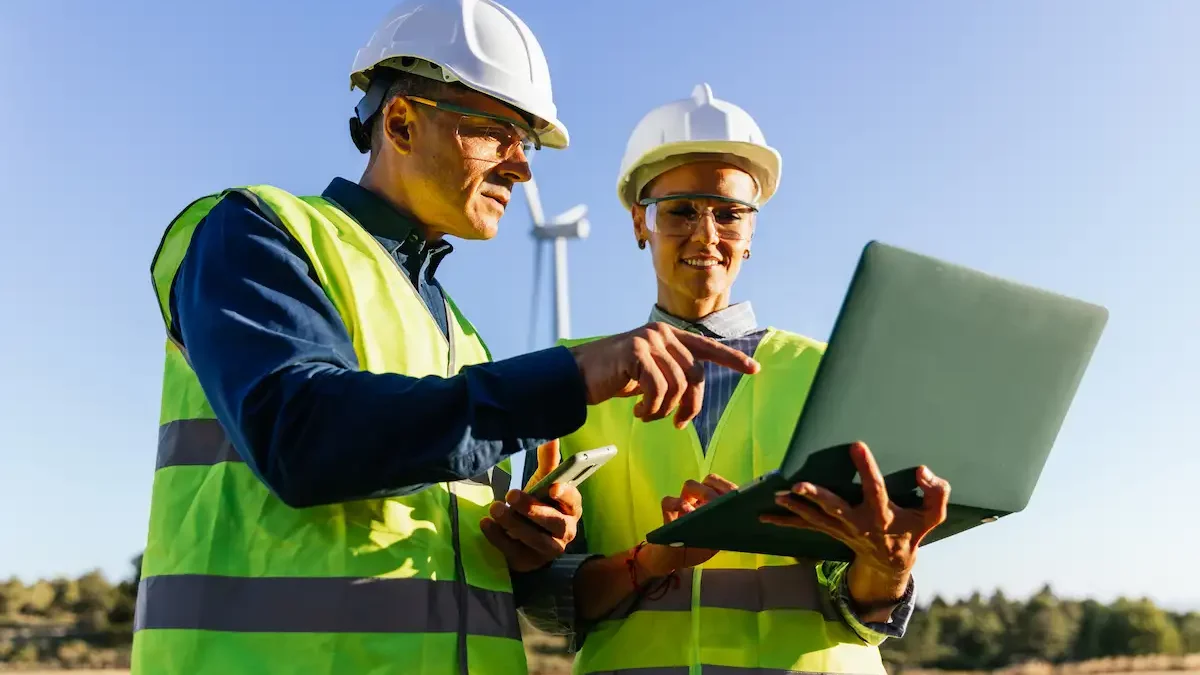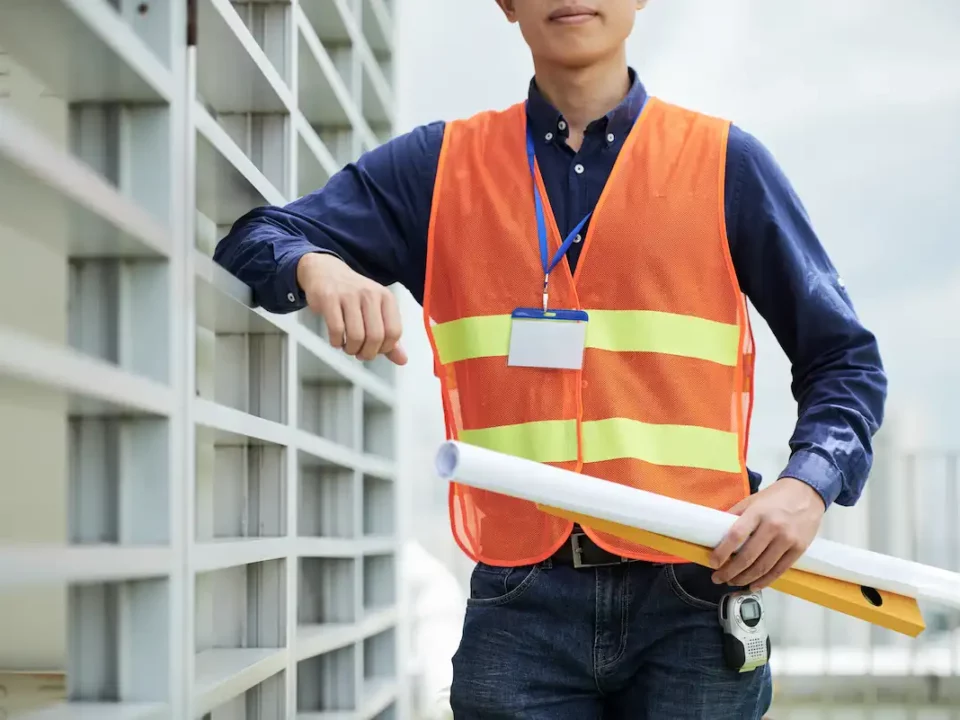Sustainable Solutions for Civil Engineering Projects in Texas

Industrial Engineering in Texas
September 30, 2024
Expertise in Structural Engineering in Houston
September 30, 2024As Texas cities continue to expand at a rapid pace, the importance of integrating environmentally conscious approaches into civil engineering projects becomes more critical. At Bovay Engineers, we are committed to delivering state-of-the-art sustainable solutions that not only support the infrastructure needs of growing communities but also protect natural resources and mitigate environmental impact. By prioritizing green infrastructure in Houston and other major Texas cities, we aim to lead the way in creating resilient, eco-friendly urban environments.
The Role of Green Infrastructure in Urban Development
Green infrastructure is the practice of using nature-based systems and sustainable engineering to manage stormwater, improve air quality, and reduce energy consumption in urban areas. In cities like Houston, where rapid urbanization can strain existing resources, integrating green infrastructure is essential to maintaining a balance between development and environmental health. Our expertise lies in designing systems that promote long-term ecological sustainability while supporting the growing needs of Texas communities.
Green infrastructure solutions range from permeable pavements, green roofs, and rain gardens to larger-scale systems like wetlands restoration and urban forests. These natural systems work alongside traditional infrastructure to enhance resilience to flooding, improve water management, and create healthier urban environments. Our projects aim to incorporate green solutions at every stage of development, from initial land planning to final construction, ensuring that environmental impact is minimized throughout the process.
Sustainable Stormwater Management and Water Conservation
Stormwater management is one of the most critical components of green infrastructure. In Texas, where extreme weather events such as heavy rainfall and flooding are common, effective stormwater systems can mean the difference between a thriving city and one that is constantly at risk of water-related disasters. At Bovay Engineers, we specialize in designing stormwater management systems that utilize green technologies to reduce the strain on existing drainage infrastructure, protect water quality, and promote natural water infiltration.
In Houston, our green infrastructure projects include rainwater harvesting systems, bioswales, and constructed wetlands that naturally filter and manage stormwater runoff. These systems help prevent urban flooding, reduce pollution entering water bodies, and ensure that excess water is redirected in an environmentally sustainable manner. By incorporating rainwater retention systems and permeable surfaces, we help communities conserve water and make better use of natural resources.
Additionally, we work on projects that improve water conservation efforts, particularly in regions where water scarcity is becoming a more pressing concern. From designing efficient irrigation systems to implementing smart water management solutions, we help municipalities and businesses use water resources more efficiently, reducing overall consumption while ensuring that the needs of the community are met.
Energy-Efficient Civil Engineering Solutions
Green infrastructure isn’t just about managing water and protecting the environment; it’s also about reducing energy consumption and minimizing the carbon footprint of civil engineering projects. In urban areas like Houston, energy efficiency is a key consideration when designing public infrastructure, buildings, and transportation systems.
At Bovay Engineers, we focus on designing energy-efficient infrastructure solutions that make use of renewable energy sources and cutting-edge technologies. This includes integrating solar-powered lighting, energy-efficient HVAC systems for public buildings, and the use of energy-saving materials in construction. Our goal is to ensure that every project we work on not only meets the highest standards of sustainability but also reduces the long-term operational costs for cities and businesses.
For instance, green roofs and vegetative walls are incorporated into building designs to provide natural insulation, which helps reduce the need for artificial cooling and heating. These solutions not only lower energy consumption but also contribute to improving air quality and reducing the urban heat island effect, creating a more comfortable and healthier urban environment.
Sustainable Transportation and Urban Mobility
Another key aspect of our green infrastructure work focuses on sustainable transportation solutions. As cities in Texas grow, there is a pressing need for efficient, eco-friendly transportation networks that can reduce traffic congestion and lower emissions. Our projects include designing walkable streets, creating bike lanes, and developing public transportation systems that promote the use of clean energy.
In Houston, a city known for its car-dependent culture, we are helping pave the way for more sustainable transportation options through smart urban planning and green infrastructure integration. By encouraging mixed-use developments and designing urban spaces that promote walking, cycling, and the use of electric vehicles, we are contributing to a future where residents can enjoy improved mobility with a reduced carbon footprint.
Our transportation projects also integrate electric vehicle (EV) charging infrastructure, energy-efficient traffic lighting, and smart city technologies to enhance the overall sustainability of urban mobility. By focusing on transportation solutions that prioritize green infrastructure, we are helping Texas cities move toward a more sustainable and energy-efficient future.
Building Resilient Communities in Houston
Incorporating green infrastructure in Houston is essential to building communities that can withstand the environmental challenges posed by climate change and urbanization. Resiliency is at the core of our engineering approach, as we aim to design systems that not only address current needs but also prepare cities for future growth and changing environmental conditions.
Our team at Bovay Engineers is well-versed in developing infrastructure that enhances the resilience of cities to extreme weather events, such as hurricanes, droughts, and floods. By utilizing natural systems and green technologies, we are able to reduce the vulnerability of urban areas to these threats and ensure that critical infrastructure remains functional during and after such events. This includes everything from flood-resistant building designs to emergency water management systems that safeguard essential resources.
By integrating green infrastructure into civil engineering projects, we contribute to the creation of more resilient urban spaces that are capable of adapting to environmental changes. These systems not only protect the environment but also improve the quality of life for residents by reducing the risks associated with climate change, improving public health, and promoting a greater sense of community.
Promoting Green Infrastructure Awareness
As pioneers in sustainable civil engineering, Bovay Engineers is committed to raising awareness about the benefits of green infrastructure among public officials, businesses, and the wider community. We believe that education and advocacy are key to ensuring that green infrastructure solutions become a standard practice in urban development.
Through community outreach programs, seminars, and collaboration with local governments, we work to highlight the long-term benefits of integrating green infrastructure in urban planning. Our goal is to ensure that the environmental, economic, and social advantages of sustainable infrastructure are understood and embraced by decision-makers across Texas. By doing so, we hope to inspire other cities and communities to follow suit, leading to a greener, more sustainable future for all.
As the demand for sustainable urban development grows, Bovay Engineers is proud to lead the charge in implementing innovative green infrastructure in Houston and throughout Texas. Our commitment to environmentally responsible engineering solutions positions us as a trusted partner for cities and businesses looking to optimize their infrastructure while minimizing their environmental impact. By focusing on sustainability, energy efficiency, and resilience, we ensure that our projects not only meet the needs of today but also safeguard the future of Texas communities.




